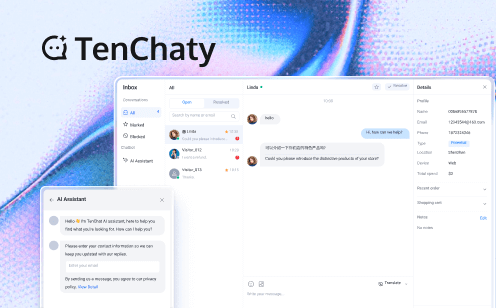
Are you struggling to engage both in-person and virtual attendees at your events? Hybrid events are the cutting-edge solution you need. In today's digital age, seamlessly blending physical and virtual experiences has become crucial for event organizers. This comprehensive guide will explore the world of hybrid events, providing valuable insights and practical tips to successfully implement this innovative approach. Whether you're a seasoned event planner or new to the industry, this article will equip you with the knowledge to leverage hybrid events for maximum impact and reach.
What are Hybrid Events?
Hybrid events are a dynamic fusion of traditional in-person gatherings and virtual experiences. These innovative events combine the best of both worlds, allowing attendees to participate either physically at the venue or remotely through digital platforms. At their core, hybrid events utilize technology to create an inclusive and interactive environment for all participants, regardless of their location.
The concept of hybrid events works by live-streaming the physical event to virtual attendees while incorporating interactive elements that enable remote participants to engage with speakers, exhibitors, and other attendees. This two-way interaction is crucial in creating a cohesive experience for both on-site and online audiences.
Key features of hybrid events include:
- Live streaming of presentations and sessions
- Virtual networking opportunities
- Interactive Q&A sessions
- Digital exhibition halls
- On-demand content access
Hybrid events can be applied to various scenarios, such as conferences, trade shows, product launches, and corporate meetings. They offer flexibility and expanded reach, making them an attractive option for organizations looking to maximize their event's impact.

Types of Hybrid Events
Hybrid events can take various forms, depending on the goals and requirements of the organizers. Some common types include:
- Hybrid Conferences: These large-scale events combine in-person sessions with virtual presentations and networking opportunities.
- Hybrid Trade Shows: Physical exhibition spaces are complemented by virtual booths and online product demonstrations.
- Hybrid Workshops: Hands-on sessions are conducted on-site while being live-streamed to remote participants.
- Hybrid Town Halls: Company-wide meetings that allow both in-office and remote employees to participate and engage.
Each type of hybrid event has its unique characteristics and is suited for different scenarios, depending on the target audience and desired outcomes.
Why Use Hybrid Events?
Hybrid events offer numerous advantages over traditional in-person or purely virtual events:
- Increased Reach: By removing geographical barriers, hybrid events can attract a global audience, significantly expanding your event's reach.
- Enhanced Flexibility: Attendees can choose their preferred mode of participation, accommodating various schedules and preferences.
- Cost-Effective: Hybrid events can reduce travel and venue costs while still maintaining the benefits of in-person interactions.
- Data-Driven Insights: Digital components allow for better tracking and analysis of attendee engagement and behavior.
- Sustainability: Reduced travel requirements contribute to a lower carbon footprint.
Compared to traditional events, hybrid events offer a more inclusive and adaptable approach. They address the challenges of limited capacity, travel restrictions, and diverse audience preferences.
However, organizing hybrid events can be complex, requiring careful planning and technology integration. Potential challenges include ensuring seamless connectivity, managing time zones, and creating engaging experiences for both in-person and virtual attendees. These challenges can be overcome with proper planning and the right technological solutions.
How to Set Up Hybrid Events
Setting up a successful hybrid event requires careful planning and execution. Here's a step-by-step guide to help you get started:
- Define Your Objectives: Clearly outline your event goals and target audience.
- Choose the Right Technology: Select a reliable virtual event platform that integrates well with your in-person setup.
- Plan Your Content: Design sessions that cater to both in-person and virtual attendees.
- Prepare Your Venue: Ensure proper audio-visual equipment and stable internet connectivity.
- Train Your Team: Familiarize your staff with the hybrid event format and technology.
- Promote Your Event: Market your hybrid event through various channels, highlighting its unique benefits.
- Engage Both Audiences: Implement interactive elements like polls, Q&A sessions, and networking opportunities for all attendees.
- Provide Technical Support: Have a dedicated team to address any technical issues that may arise.
Common issues in hybrid events often revolve around technical glitches and engagement disparities. To optimize your hybrid event:
- Conduct thorough testing of all systems before the event
- Use professional-grade equipment for high-quality streaming
- Incorporate interactive elements to keep virtual attendees engaged
- Provide clear instructions for accessing and navigating the virtual platform
Best Practices for Hybrid Events
To ensure the success of your hybrid event, consider the following best practices:
- Create Engaging Content: Design presentations and sessions that are equally compelling for both in-person and virtual audiences.
- Encourage Interaction: Use tools like live polls, chat features, and virtual breakout rooms to foster engagement among all participants.
- Provide Networking Opportunities: Implement virtual networking solutions that allow remote attendees to connect with in-person participants.
- Offer On-Demand Access: Make recorded sessions available after the event for those who couldn't attend live.
- Ensure Data Security: Implement robust security measures to protect attendee information and prevent unauthorized access.
- Train Speakers: Prepare presenters to engage effectively with both physical and virtual audiences.
- Gather Feedback: Collect and analyze attendee feedback to continually improve your hybrid event strategy.
Hybrid Events Use Cases
Hybrid events have been successfully implemented across various industries:
- Tech Conferences: Companies like Apple and Microsoft have adopted hybrid formats for their developer conferences, reaching a global audience while maintaining the excitement of in-person demonstrations.
- Medical Symposiums: Healthcare organizations have leveraged hybrid events to share critical research and facilitate discussions among professionals worldwide.
- Corporate Annual Meetings: Large corporations use hybrid events to engage shareholders and employees across different locations.
- Trade Shows: Industries like automotive and consumer electronics have embraced hybrid formats to showcase products to a broader audience.
Success Story: The Consumer Electronics Show (CES) 2021 successfully transitioned to a hybrid format, featuring virtual exhibits and live-streamed keynotes alongside limited in-person demonstrations. This approach allowed the event to maintain its global reach despite travel restrictions.
Elevating Hybrid Events with Tencent RTC
In the evolving landscape of event management, Tencent RTC emerges as a game-changer for hybrid events. Let's explore how Tencent RTC can transform your hybrid event experience:
Seamless Integration
Tencent RTC's conference SDK offers:
- Comprehensive meeting functions (room management, screen sharing, member control)
- High compatibility across platforms
- Globally optimized deployment for low latency
Enhanced Engagement
Leverage Tencent RTC's live solutions for:
- Real-time chat and gift systems
- Multi-guest participation
- Audience interaction tagging system
Customization and Reliability
Tencent RTC stands out with:
- Personalized UI options and open-sourced UIKits
- 99.9% service availability
- Intelligent algorithms maintaining call quality even at 71% packet loss
Global Reach
Expand your event's horizons with:
- Coverage in over 200 countries
- End-to-end latency less than 300ms
- Cross-platform login support
By harnessing Tencent RTC's robust features, event organizers can create immersive hybrid experiences that seamlessly connect in-person and virtual attendees, setting new standards in event engagement and accessibility.
Future Trends in Hybrid Events
The future of hybrid events looks promising, with several emerging trends:
- Enhanced Virtual Reality (VR) Integration: Immersive VR experiences will blur the lines between in-person and virtual attendance.
- AI-Powered Networking: Artificial intelligence will facilitate more meaningful connections between attendees based on interests and goals.
- Personalized Content Delivery: Machine learning algorithms will curate personalized event experiences for each attendee.
- Hybrid Event Platforms: Dedicated platforms will emerge, offering seamless integration of physical and virtual components.
As technology continues to evolve, hybrid events are expected to become more sophisticated, offering increasingly engaging and interactive experiences for all participants.
Conclusion
Hybrid events represent a powerful solution for organizations looking to maximize their reach and engagement in today's digital landscape. By combining the best aspects of in-person and virtual events, they offer unparalleled flexibility and opportunities for connection. As we've explored in this guide, successful hybrid events require careful planning, the right technology, and a focus on creating engaging experiences for all attendees.
We encourage you to embrace the potential of hybrid events and explore how they can benefit your organization. Start small, learn from each experience, and gradually expand your hybrid event capabilities. The future of events is hybrid – are you ready to take the leap?
FAQs
How do hybrid events differ from virtual events?
While virtual events take place entirely online, hybrid events combine both in-person and virtual elements. They allow for physical attendance at a venue while simultaneously offering a virtual experience for remote participants.
What technology do I need for a hybrid event?
Essential technology for hybrid events includes a reliable internet connection, high-quality audio-visual equipment, a virtual event platform, and live streaming capabilities. Depending on the scale and complexity of your event, you may also need additional tools for audience engagement and networking.
How can I ensure equal engagement for both in-person and virtual attendees?
To maintain engagement across both audiences, incorporate interactive elements such as live polls, Q&A sessions, and virtual networking opportunities. Ensure that speakers address both in-person and virtual attendees, and consider assigning a dedicated moderator to manage online interactions.
If you have any questions or need assistance online, our support team is always ready to help. Please feel free to Contact us or join us on Telegram or Discord. For technical problems, you can also get help directly from developers on Stack Overflow.


